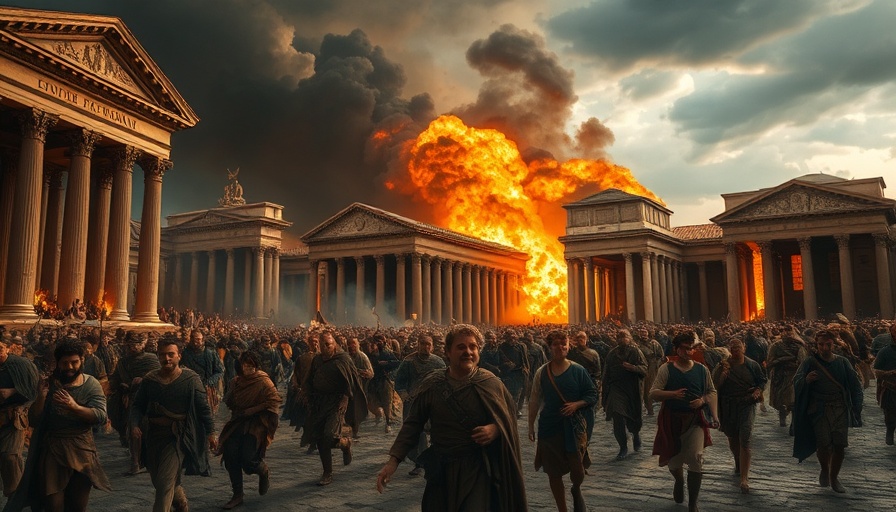
Bringing Ancient Civilizations Back to Life with AI
Imagine being able to walk through the bustling streets of ancient Rome or Greece, witnessing the culture and activities of daily life. Thanks to recent advancements in artificial intelligence, this dream is becoming a reality. The Re-Experiencing History platform has been developed by a team from the University of Zurich, allowing users to engage with history in a way that merges imagination and scholarly research.
How the AI Works: A Deep Dive into Historical Reconstruction
This innovative tool utilizes an AI image generator informed by nearly 300 scholarly images and captions. With this refined approach, the platform creates visuals based on rigorous academic scrutiny rather than modern interpretations. This means that rather than a Roman soldier wearing sneakers and sunglasses, users can expect historically accurate depictions generated by software trained on actual research, including detailed analyses of ancient Roman clothing, architecture, and rituals.
Fostering Deeper Engagement with History
Felix K. Maier, a professor of ancient history, and Phillip Ströbel, a computational linguist, explain that their goal is to foster a dialogue between evidence and imagination. By presenting visuals that provoke thought and discussion, users are encouraged to ask questions about the past and engage deeply with various historical contexts. Instead of merely observing history, users can dive into the details, gaining richer insights about the societies that once thrived in these ancient landscapes.
A Unique Educational Resource for the Next Generation
One of the platform's main advantages is its potential as an educational tool. By utilizing these AI-generated images, educators can create a more engaging learning environment. High school students tasked with exploring ancient events can visualize scenarios, prompting them to engage with history critically. As Maier points out, the platform enables students to reimagine historical moments, leading to newfound insights and interpretations.
The Balance Between Technology and Tradition
Despite the innovative nature of the Re-Experiencing History platform, it does not claim to provide perfect reconstructions. Instead, it offers visual hypotheses that foster discussion and exploration. By navigating imperfections in AI-created imagery, users can develop critical thinking skills while understanding that history is often subject to interpretation. Scholars note that these discrepancies can lead to rich discussions about what constitutes historical truth.
Comparison with Other Technological Innovations in Historical Reconstruction
While the AI platform is exciting, it is not the only technology providing innovative insights into ancient history. For example, Flyover Zone has developed a 3D reconstruction of ancient Rome, called Rome Reborn, which allows users to visualize the city as it may have appeared during its height in A.D. 320. This immersive experience invites viewers to explore historical landmarks, thus enhancing their understanding of ancient urban life.
Embracing the Power of Technology in Historical Studies
The intersection of AI and history is significant. As educational tools evolve, they provide fresh perspectives that can replace outdated methods of engagement. By embracing technologies like AI, historians and educators can break new ground in how history is perceived and taught, moving from static textbooks to interactive experiences.
Looking Ahead: Future Possibilities for AI in Historical Contexts
As we advance into an era where technology is increasingly integrated into everyday life, the merging of AI and humanities opens doors to previously unimaginable opportunities. The Re-Experiencing History platform may serve as a model for future projects across different cultures and historical epochs. Imagine AI technologies bringing the stories of ancient Egypt, Mesopotamia, or even the medieval period to life, rewriting how we understand and appreciate our global heritage.
As technology continues to advance, it is an exciting time to explore the world of AI news and discover how these developments can influence our understanding of both the past and our future.
 Add Row
Add Row  Add
Add 




Write A Comment